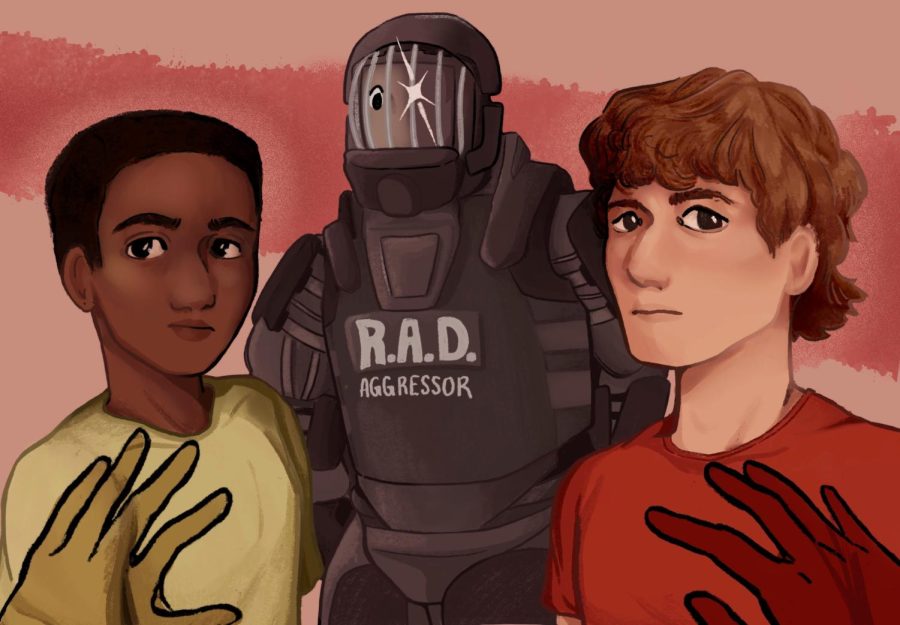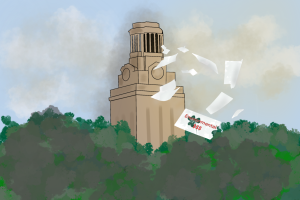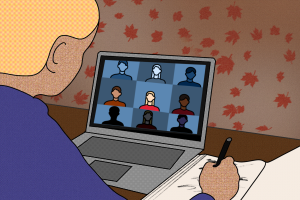UTPD should hold RAD classes regularly for all students
November 30, 2022
In the past semester, students have received a significant number of aggravated assault notifications that have occurred near campus. The prevalence of these incidents makes UT’s self-defense resources, like Rape Aggression Defense System classes, even more crucial in preventing sexual assault and other acts of violence that students are vulnerable to.
In 2001, UTPD started offering RAD classes for women twice per semester and for men upon request. However, these classes were postponed due to the pandemic and started up again this summer, on a non-regular basis.
“We plan on having more training availability in the future,” said Stephanie Jacksis, director of communications and strategic marketing for the University of Texas at Austin Police Department, in an emailed statement.
UTPD should hold RAD classes regularly for all students, once a month for women and twice a semester for male students, because students need these skills to stay safe. Furthermore, UTPD should better advertise this resource, so more students can take advantage of it.
“There’s been a couple of times where I felt unsafe (on Guadalupe Street), especially when it’s in the afternoon, or the late evening,” economics freshman Savannah Rakowitz said.
Female students feel unsafe in areas surrounding the University, and they don’t feel safe walking alone.
“You should feel safe anywhere,” Rakowitz said. “But I think having a self-defense class would definitely help with that.”
Not only do female students need regular access to RAD classes, but so do male students, as 6.8% of male undergraduate students experience sexual assault.
Although campus is relatively safe, areas around campus are riskier at night. Sena Flores, a biomedical engineering freshman, explained that his LGBTQ+ identity makes him feel the need to mask his identity to prevent threats of violence and sexual assault.
“If I’m going out to a party, I’m definitely wearing more flashy outfits, things that make it really easy to identify like if a person is LGBTQ+,” Flores said. “I wouldn’t necessarily be comfortable walking around.”
The Center for American Progress reports LGBTQ+ students face sexual harassment more often than non-LGBTQ+ students, emphasising the importance of RAD classes for LGBTQ+ individuals.
RAD classes for male students remain less popular than classes for female students. Jacksis said there were less than a dozen requests for male RAD classes in the last decade.
“UTPD will continue to offer RAD for any group who requests the class and will consider providing more courses if there’s an uptick in requests,” Jacksis said in an email.
Male students shouldn’t need to ask for a self-defense class to get essential training; instead, UTPD should offer classes twice a semester for male students.
“There is that barrier when you have to ask people because you don’t want to be a bother,” Flores said.
Asking students to request RAD classes created an additional hurdle for them to overcome. This extra step discourages students from requesting classes, making them less likely to use UTPD’s resources.
Furthermore, both Flores and Rakowitz expressed their lack of knowledge surrounding RAD classes. UTPD primarily advertises these classes through the program website, but this does not effectively communicate self-defense resources to the UT student body.
Jacksis said UTPD instructed an average of 20-40 people per semester prior to COVID-19. This previously low demand for RAD classes would increase if more students were aware of RAD classes. UTPD could email the student body to alert them of this opportunity when RAD registration opens, like how the University does with other on-campus opportunities.
“Considering the amount of alerts we get on our phones about a crime happening in West Campus or on campus, it would be really nice to have the tools to protect yourself,” Rakowitz said.
Muthukrishnan is a government freshman from Los Gatos, California.















